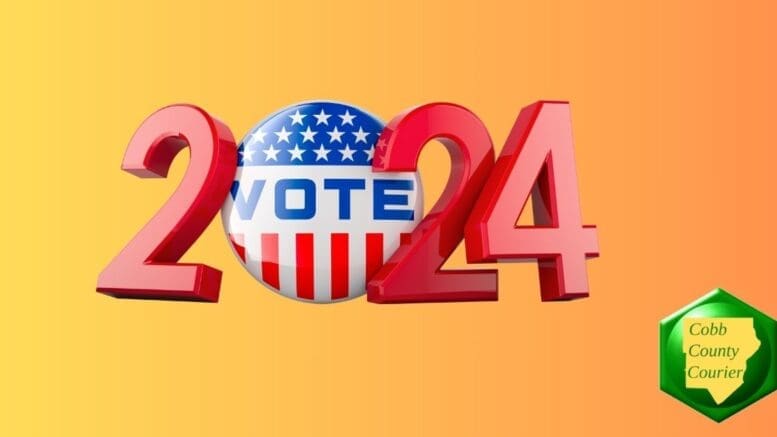By John A. Tures, Professor of Political Science, LaGrange College
Thursday evening’s event cancellation by the Harris Campaign was made out of an abundance of caution. It was also a recognition that violence in and around campaign rallies appears to be the new normal.
People were gathered at a community center in Riverdale, Georgia. Nearly every seat was taken, while an early attendee saved mine. A mixed group had gathered, though all were Democrats, motivated and ready to see the speakers: former gubernatorial candidate Stacey Abrams, Congresswoman Nikema Williams, and of course, actress Julia Roberts.
But the event never happened.
The start of the event was delayed while all waited around nervously. Finally, Abrams and Williams came to the microphone. They told us about a security incident, and that the event would have to be regrettably postponed until another time. They gave a quick review of the three V’s: Verify (the vote), Volunteer (to vote) and to actually Vote. Then they were gone. Chairs were rapidly folded and taken away. It was over in minutes. It was very eerie how fast it the event was ended.
One of the attendees told me that there had been a shooting nearby. An officer confirmed that someone had discharged a weapon at a Walmart parking lot not far away. There were no reports of fatalities or injuries. Nobody knew if the shooter did what he (or she) did to disrupt the event and draw the cops away.
This summer, we saw the first presidential assassination attempt in years, where the shooter researched who to take out: Trump or Biden, and found the Trump event to be a little closer. Our current political polarization led some conservatives to believe that the event was a massive Democratic Party conspiracy, and some liberals to believe that it was staged for political benefit.
Lost in all of this is that while crime rates are declining, that’s not the case for political violence. Rose Harris, a student of mine, researched this earlier in the Spring, finding an increase in such events, a harbinger of bad things to come after a contentious election.
What can we do?
Certainly supporting anti-crime measures that don’t involve law enforcement using ruthless tactics to spark a backlash is one thing, and few I know who are officers seem to support having a police-like “purge” as has been suggested.
As for political violence, it has been suggested that dismissing all political talk is the solution, the logic being that with no political talk, that will deprive violence of any oxygen.
Nothing could be further from the truth.
In dictatorships, political talk isn’t just censored. It is self-censored by those too fearful. You can see this happen before an authoritarian takes over, as I have seen in several countries I’ve been to before they revert from democracy to autocracy. We have a right, and an obligation, to recognize that we can respect a variety of viewpoints, but not to promote violence by one against another, especially when the source of the extreme views is domestic or foreign propaganda that seeks the very overthrow of our government and Constitution.
John A. Tures is a professor of political science at LaGrange College in LaGrange, Georgia. His views are his own. He can be reached at jtures@lagrange.edu. His “X” account is JohnTures2.
